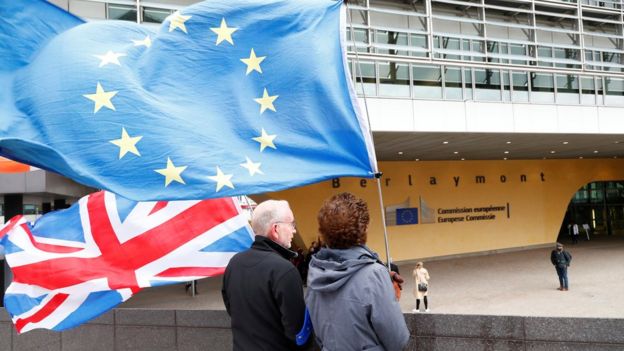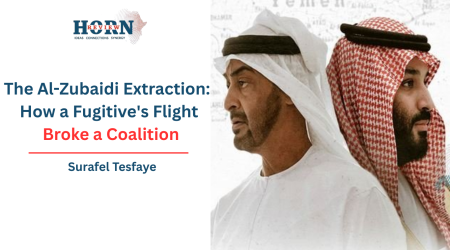
12
May
From Brexit to Brussels: Farage and the Far Right’s European Reawakening
Europe is witnessing an unexpected surge of populist, nationalist forces at a moment of deep economic and social strain. Slow rate of growth, inflationary pressures and simmering cultural anxieties have driven voters toward parties that promise simple solutions to complex problems. In many countries this surge has triggered an aggressive response from the political mainstream and state institutions. Intelligence agencies are monitoring far-right groups, courts are prosecuting party leaders, and coalitions of centrist parties are forming cordons sanitaires to keep fringe movements out of power. This cause and effect cycle, populist anger provoking establishment resistance raises fundamental questions about the democratic compact in Europe and its future path.
Several overlapping factors have caused far-right movements to flourish across the continent in recent years. Economic dislocation has left many voters feeling abandoned by the traditional center-left and center-right parties. The twin shocks of the pandemic and the Ukraine war have strained household finances, undermined confidence in elites, and intensified calls for change. High migration flows from crisis regions have become a potent rallying point: far-right platforms exploit public fears by blaming outsiders for jobs shortages, housing constraints and cultural loss. At the same time, many Europeans are disillusioned by perceived political corruption or bureaucratic gridlock in Brussels, feeding a sense that the system is rigged. Social media and partisan news outlets amplify these grievances, allowing these sort of views to spread. In short, economic insecurity, immigration anxieties, political frustration, new media dynamics have combined to trigger a wave of populist momentum. For instance, visible influxes of refugees and migrants feed nationalist narratives about lost identity and security.
These causes have moved Europe’s far-right from the fringes into the spotlight. In country after country, polls now show far-right parties winning double-digit support. France’s National Rally (RN) and Germany’s AfD were scoring historically high, Romania’s Simion’s party gaining traction, same is true for new groups in Scandinavia, the Low Countries and Southern Europe.
The immediate effect of this surge has been a reactive pushback from Europe’s liberal-democratic establishment. Governments and civil society actors across the EU are working to contain far-right momentum through legal and political means, hoping to preserve social cohesion and protect democratic norms. To counter the rise of far-right parties, European have implemented a series of containment strategies that reflect both institutional resilience and political caution. Germany, for instance, recently classified the AfD as an extremist entity, triggering legal constraints such as restricted access to public funds and intensified surveillance. This move not only limits operational capacity but also delegitimizes such parties in public perception. Parallel to this, judicial systems have pursued legal accountability, with high-profile cases such as Marine Le Pen’s conviction for embezzlement in France resulting in bans from holding office. Politically, mainstream parties continue to enforce “cordon sanitaire” strategies, refusing to form coalitions with far-right factions despite their electoral successes.
In sum, mainstream actors have responded to far-right growth by closing ranks – legally, politically and socially. Each crackdown has its own logic of cause and effect. Governments argue that calling it as “unchecked extremism” could undermine pluralism and fuel violence, so they react with new oversight. The effect is to marginalize these parties, but it also stokes a narrative of victimhood that the far-right can exploit. This tension, between safeguarding the constitution and alienating a segment of voters, is at the heart of Europe’s current political drama.
Germany provides a clear example of this dynamic. The AfD began as an anti-EU protest party and has steadily shifted further right, tapping into concerns about immigration and national identity. Its impressive election gains (now the largest opposition grouping in the Bundestag) alarmed mainstream parties. This extraordinary step means AfD officials and branches are now monitored like a suspected threat to democracy. In response, the U.S. deemed the action as undemocratic, further aggravating its criticism of European politics. Moreover, the failure of F. Merz to be chosen as chancellor by Germany’s parliament on the first attempt marks a new phase in German politics, even though he ultimately secured the position.
In France, the dynamic is similar though shaped by its own institutions. Marine Le Pen and her National Rally have long dominated polls, positioning RN as a credible challenger. The establishment response has been legal as much as political. Le Pen is facing a significant prison sentence (of which some was suspended) and a five-year ban from holding public office. The court found that large sums of EU parliamentary funds were misused to pay party workers. From the government’s perspective, showing that the law applies to even the most powerful politicians is necessary to uphold integrity. The effect, however, is to weaken RN’s immediate electoral prospects: with Le Pen sidelined, the party must refresh its leadership. Mainstream parties have seized the moment to tighten their own alliance, despite Trump’s showing of its support to Le Pen.
In this European panorama, the UK stands out as an exception. Nigel Farage’s party Reform UK has capitalized on anti-establishment sentiments much like its continental counterparts, but it faces none of the institutional straitjackets that are being applied on the Continent. Farage has recently ridden a wave of popular frustration to historic highs: recently, polls showed Reform leading both the governing Labour Party and the opposition Conservatives. The party won by-elections in former Labour strongholds, and even captured a local mayoralty.
It raises the question as to why is he becoming an exception. Several causal factors explain this difference. First, Britain is no longer an EU member, so there is no external body imposing discourse codes or funding regulations. Farage is not constrained by Brussels narrative, he actually campaigned to free the UK of such constraints. Second, the UK’s political culture has traditionally been more open to populist rhetoric; British law does not easily ban parties on ideological grounds, and free speech protections for political debate are strong. Third, the electoral system, while generally tending to marginalize smaller parties – has in this case responded to an acute Brexit-induced realignment.
Furthermore, Farage’s ascendance has lacked the institutional countermeasures seen in Germany or France. He was not labeled extremist, nor has he been subject to high-profile corruption convictions (so far). Major media outlets, even if critical, routinely interview him; parliamentary rules have not targeted his party with special sanctions. In effect, the system has treated Reform UK as a legitimate protest movement rather than an existential threat.
This UK exception has important effects. One of them is, will German or French far-right supporters point to Britain and argue that their parties are being unfairly persecuted? But it might be too early to say this. The result is that European liberalism itself is being tested: if the mainstream suppresses dissent too harshly, it may appear hypocritical; if it allows far-right advances, it worries about social order and minority rights.
For the EU’s future, this struggle could determine whether integration deepens or fractures. If far-right forces use this moment to discredit EU institutions (labeling them bureaucratic and out-of-touch), they may push more countries toward nationalistic policies or even referendums on EU membership.
By Yonas Yizezew,Researcher,Horn Review










